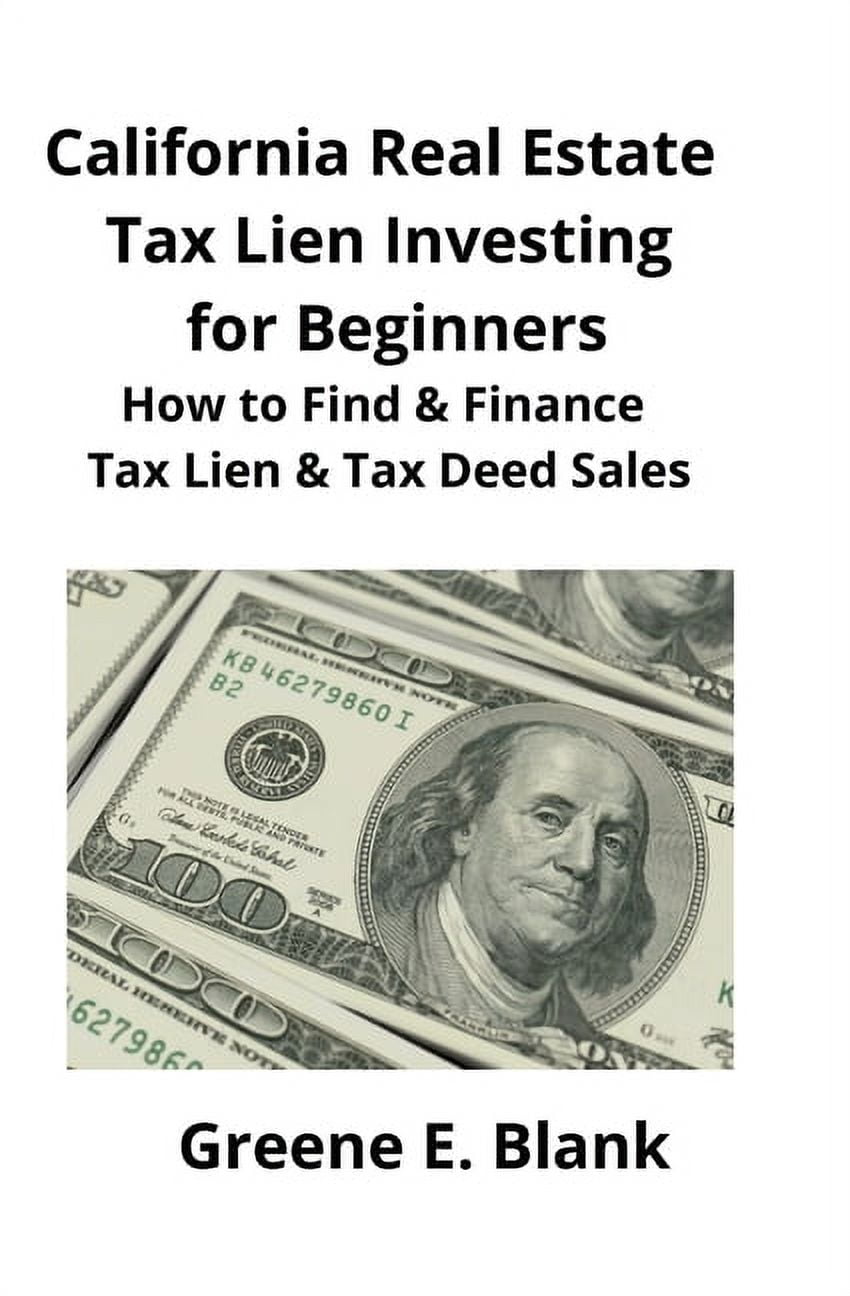All Categories
Featured
Table of Contents
In most cases, you will certainly need to outbid various other financiers by using to pay a greater costs (tax lien vs tax deed investing). This costs is generally much less than the actual amount of taxes owed, yet it's up to the financier to make a decision if the danger deserves the collection incentive. In many places, real estate tax are around one percent of the residential property's value

Tax obligation lien financiers make their cash on the interest payments they accumulate when the house owner pays back the tax obligations they owe. In some locations, these rates of interest are as high as 18 percent, which is greater than the typical credit card rate of interest. Home owners can pay what they owe simultaneously, or they can go on a layaway plan varying from one to 3 years.
Invest In Tax Lien Certificates
In the above example, someone with an outstanding tax obligation financial obligation of $4k (two years of back taxes) would certainly be giving a tax obligation lien owner with potentially approximately $720 in interest payments, dealing with the 18 percent interest rate we stated previously. One of the best benefits to tax lien investors is the prospective to get a new residential or commercial property for their real estate portfolio, without having to pay its market price.

This is an approach that several real estate capitalists utilize to get undervalued residential or commercial properties or distressed homes. And if the building proprietor does pay their debts, they will still earn a profit in the kind of rate of interest. It's a great deal for the tax obligation lien investor. There are some disadvantages to tax lien investing.
Once the lien is paid, the capitalist has to go on and seek a new financial investment. Of course, if the homeowner is still in default, the lien owner will acquire the residential property, which might become a reoccuring resource of revenue. Someone who purchases a tax obligation lien may discover themselves knotted with other liens on the residential property, specifically if they end up declaring the building in the event that the financial obligation goes unsettled.
This can cause great deals of lawful battles, which is why it's vital to collaborate with attorneys and tax obligation advisors who recognize points like deed vs title. and can aid with carrying out due persistance on a residential or commercial property. The legislations around tax lien investing (and related issueslike foreclosing on occupants) are not consistent throughout states that offer financiers the capacity to take part in a tax lien sale.
Considered that tax obligation liens are usually offered at auction, competing bidders will certainly bid up the premium and bid down the passion price that can be accumulated on the unsettled taxes. The winner of the public auction will certainly be the investor who is paying the highest possible premium and obtaining the cheapest rates of interest in return.
Tax Lien Certificate Investing
In this vein, tax obligation lien investing is a little bit much more sport-like than conventional easy methods of making earnings. The initial thing you'll wish to do is get knowledgeable about the location you're thinking about in regards to the property market. Bear in mind that one advantage of becoming a lienholder is gathering the property if the financial debt goes unpaid, so you will require to know where that building is.
As soon as you have actually found out these information out, you need to contact your neighborhood area treasurer's office to discover when and where the following tax obligation lien auction is being held. These public auctions are usually kept in individual, but in today's day and age, a number of have actually transitioned to on the internet locations.

Many regional papers publish these lists every year or semiannually. Remember that building tax obligations are typically one percent of the home value, yet overdue tax obligations building up over several years could be a more sizable quantity.
Is Investing In Tax Liens A Good Idea
it has actually the added perk of getting the residential property if the financial debt remains unsettled. While it can be a lucrative opportunity for the investor, it does call for some tactical footwork. Tenants and residential property owners do have legal securities that make tax lien spending a much more involved process than simply bidding to buy a financial debt and waiting to gather the repayment.
Purchasing tax obligation liens entails purchasing a lawful case on a building due to overdue residential property tax obligations. This method of investing has obtained popularity as a result of its potential for high returns with relatively reduced initial funding. Tax obligation liens are generally sold at auctions, and the procedure can vary depending upon the place.

Financiers seek tax obligation liens for several factors: 1. Reduced Preliminary Investment: Tax obligation lien spending often needs a tiny amount of cash to start, making it available to a wide variety of capitalists. Some tax obligation liens can be acquired for just a few hundred dollars. 2. High Returns: The rates of interest on tax obligation liens can be significantly more than conventional financial investment returns.
What Is Tax Lien Certificates Investing
3. Building Purchase: If the building owner stops working to pay the overdue taxes and rate of interest within the redemption duration, the financier might have the right to seize and get the building. Develop an account online, or call us for further details. When capitalists buy a tax obligation lien, they pay the past due taxes on a residential or commercial property and obtain a tax obligation lien certification.
Repayment by the Building Proprietor: The residential or commercial property owner pays back the past due taxes plus interest within a specified period, and the financier obtains the settlement with passion. Repossession: If the building proprietor does not settle the taxes within the redemption duration, the investor can launch repossession proceedings to acquire the residential or commercial property.
The self-directed IRA purchases the lien certification and pays linked fees. Expect the homeowner pays back the lien, and the proceeds return to the individual retirement account. If the residential property is seized and sold, the sale earnings likewise return to the IRA, possibly expanding the retirement financial savings. Tax obligation Lien: The government sells a lien on the property as a result of overdue tax obligations.
Investing In Tax Lien Certificates Online
Tax obligation Deed: The federal government offers the real deed to the building at auction. According to the National Tax Obligation Lien Association (NTLA), 36 states and 2,500 jurisdictions within the United States enable for the sale of tax obligation liens, while just 31 states enable tax deed sales.
Table of Contents
Latest Posts
Tax Lien Foreclosed Properties
Back Taxes Homes
Buy Homes For Taxes Owed
More
Latest Posts
Tax Lien Foreclosed Properties
Back Taxes Homes
Buy Homes For Taxes Owed